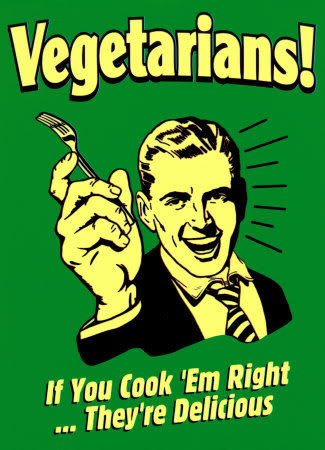THE ARTS ARE SHORT ON PRACTICING CHRISTIANS AND JEWS but long on vegetarians. Even longer on environmentalists. The two go together, like a statue of Mary on one side of a Catholic altar and Joseph on the other.
Earlier in May, Victor Davis Hanson wrote that “radical environmentalism died this year.
” Well, why not. If Philip Larkin could place the beginning of sexual intercourse at 1963, this is as good a year as any for the death of Gorism and vegan piety that attaches to it. In a sane world, 2010 would do nicely as our own annus mirabilis—the year of the Climategate scandal and the year Al Gore turned on the electricity in his unsustainable 10,000 square foot house in Montecito, California.
If only it were true. But sanctimony does not die that easily. The ecstatic quality to environmental passion is fully on view in Lierre Keith’s The Vegetarian Myth. Do not be lured by the title. The giveaway to the moral preening at the heart of things here is in the subtitle: food, justice, and sustainability. Nor should you be misled by the lower case. There is no modesty whatever in the author’s contention that agriculture is an assault against the planet and that the suffering planet will only be saved when we start eating—and thinking—like Keith.
Various physical conditions forced Ms. Keith to convert from strict vegetarianism to conscientious embrace of her inner carnivore. But not without a good deal of hedging about, gainsaying and grandstanding in the service of an unkickable messianic urge to save the planet from our eating habits. And our farming habits. Even husbandry itself.
It has become something of a commonplace to refer to radical environmentalism—distinct from what was once called stewardship over the environment— as a pseudo-religion. On the evidence of Keith’s text, there is nothing pseudo about it. It is an all-encompassing set of beliefs with its own distinct narrative and required practices. One doomful conviction is that agriculture has its dark side: “Soil, species, rivers. That’s the death in your food. Agriculture is carnivorous: what it eats is ecosystems and it swallows them whole.”
An ecological Armageddon looms that will bring with it plagues of biblical scale. Keith, our Cassandra, knows what they are:
. . . one day the oil and gas will run out. Your phosphorous will have to be made from rocks. . . . How will you mine it, grind it, or transport it without using slavery? . . . Meanwhile, the soil is turning to dust, clogging the rivers, blowing across the continent. . . . This is where agriculture ends: in death. The trees, the grasses, the birds and the beasts are gone, and the topsoil with them.
Agriculture is a kind of holocaust:
It is my conviction that growing annual grains is an activity that cannot be redeemed. It requires wholesale extermination of ecosystems—the land has to be cleared of all life. . . . And it has devastated human cultures, leaving slavery, class stratification, militarism, population overshoot, imperialism, and a punishing Father God in its wake.
God the Father might be passé, but the Corn God, and some others, wait for us to rediscover them. Keith has a good summary of vegetarian primitivist thinking. She takes literally the comments of Barbara McClintock, Nobel Laureate and geneticist, who said it was the corn that told her what she needed to know. All corn asked for in return was care and respect. Keith quotes Patricia Gonzalez Patzin, who puts out a journal of indigenous Mexican medicines: “Corn is our Parent and Elder.”
Then there is the old Winnebago belief that if you tell medicinal plants what you need, they will put forth their strength for you. The Iroquois, too, prayed to medicinal plants.
And we are exhorted to heed the wisdom of Creeks and Cherokees who insist plants will take pity on us because we are their children. On it goes, until the fish eat us and “take us home.”
Out of medical necessity, Keith has surrendered the vegan creed but not its messianic pretensions:
The moral valuing of justice over power, care over cruelty, and biophilia over anthropocentrism is a shift in values that must occur if we are to save this planet. . . . We will never take our true place, one sibling amongst millions, sharing a common journey from carbon to consciousness, sacred and hungry, then back to carbon, without firmly and forever rejecting human domination.
Keith’s baneful antinomianism runs through the arts like corrosive salts through a fresco. More and more graduate art programs feature subjects such as sustainable art, green art, or some variant that caters to green sensibilities. And on a global scale. Much of it is light on art but heavy on ideology. No program that I know comes right out and recommends, as Keith does, that [1] you refrain from having children [2] stop driving a car [3] grow your own food. But give the academic ideologues time.
This all makes it so easy to be an artist. You have only to care enough about saving the planet, be hostile to free enterprise, have a chip on your shoulder toward masculinity (“required in any militarized society”), and agree with Keith that “agriculture was the beginning of global warning.” It does not matter what you produce. It is the stance that counts.
Only one proviso: you have to be aggressively—militantly—entrepreneurial in competing for grant money. There will be less of it as we slouch into the Third World.
© 2010 Maureen Mullarkey



